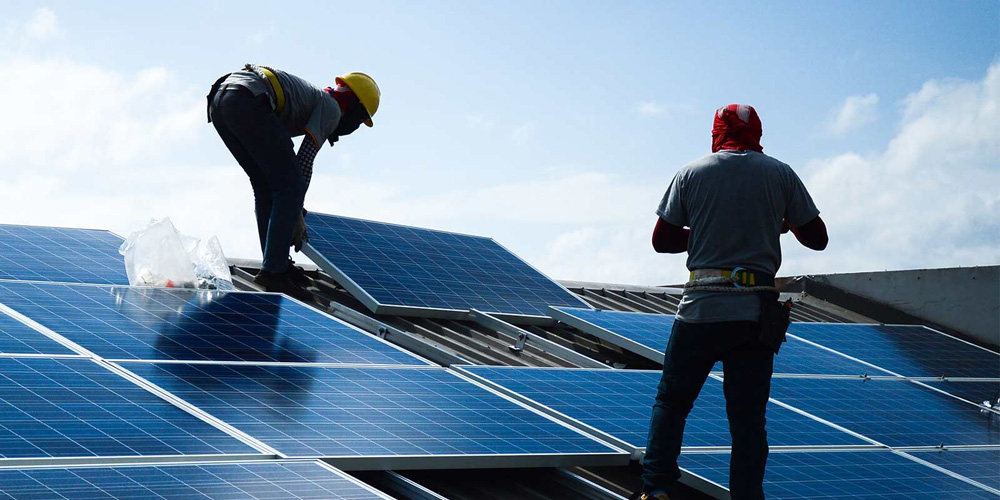Rooftop solar panels are gaining popularity as a sustainable and cost-effective energy solution. With increasing electricity prices and government incentives, many households and businesses are switching to solar energy. However, before you proceed with installation, there are several factors to consider to ensure your investment is worthwhile. In this article, we’ll explore these factors.
1. Evaluate Your Roof’s Suitability
Your roof’s size, structure, and orientation are critical for a successful solar installation.
- Roof Material: Concrete and metal roofs are ideal for solar panels.
- Roof Strength: Ensure the structure can support the weight of the panels and mounting systems.
- Orientation: In India, south-facing roofs receive maximum sunlight throughout the year.
Pro Tip: Hire a professional to assess your roof’s condition before installation.
2. Understand India’s Climatic Conditions
India’s climate varies widely across regions, affecting solar panel efficiency.
- High Temperatures: Opt for heat-resistant panels, as excessive heat can lower efficiency.
- Dust and Pollution: Choose panels with anti-dust coatings and plan for regular cleaning, especially in areas with high pollution levels.
3. Analyze Your Energy Needs
Review your electricity bills to estimate your household’s energy consumption. A typical Indian household consumes around 200–300 units per month, which will guide the system size required.
Quick Tip: An average 1 kW solar system generates approximately 4–5 units of electricity per day, depending on sunlight availability.
4. Check Government Subsidies and Incentives
The Indian government offers several subsidies to promote solar adoption.
- Residential Rooftop Solar Subsidy: Under the National Solar Mission, subsidies of up to 40% are available for systems up to 3 kW.
- State-Specific Subsidies: States like Gujarat, Maharashtra, and Rajasthan provide additional financial incentives.
- Net Metering Policies: You can sell excess electricity generated to the grid and offset your electricity bill.
Action Point: Check with your state’s renewable energy agency for the latest schemes and benefits.
5. Choose the Right Solar Panels
India’s market offers three main types of solar panels:
- Monocrystalline: Highly efficient but slightly more expensive.
- Polycrystalline: Affordable and widely available.
- Thin-film: Ideal for areas with diffuse sunlight but less efficient.
Pro Tip: Consider efficiency and budget when selecting panels. Monocrystalline panels are ideal for space-constrained roofs.
6. Plan for Inverters and Battery Storage
Inverters convert the DC power generated by panels into usable AC power.
- Grid-Tied Systems: Ideal for areas with reliable electricity supply; excess energy is sent to the grid.
- Hybrid Systems with Batteries: Perfect for areas with frequent power cuts, as batteries store energy for backup use.
Indian Market Insight: Lithium-ion batteries are becoming increasingly popular for their longer lifespan and better efficiency.
7. Understand Installation Costs
Solar installation costs in India have decreased significantly over the years. A typical 1 kW rooftop system costs around ₹50,000–₹60,000 after subsidies.
Cost Breakdown:
- Panels: 60–70% of the cost.
- Inverter: 20–25%.
- Installation and wiring: 10–15%.
8. Research Local Regulations and Approvals
Solar installations in India require approval from your local electricity board (DISCOM). Ensure you comply with net metering and grid-connection policies.
Action Point: Work with an installer who is familiar with your state’s regulations to streamline the approval process.
9. Maintenance and Cleaning Requirements
India’s dusty environment necessitates regular cleaning to maintain efficiency.
- Cleaning Frequency: Clean panels every 2–4 weeks in dusty regions.
- Professional Maintenance: Schedule yearly inspections for wiring, mounting systems, and overall performance.
10. Select a Trusted Installer
Choose an installer with experience in the Indian market. Look for MNRE (Ministry of New and Renewable Energy) certification to ensure quality service.
Tip: Ask for a detailed warranty covering both equipment and installation services.
11. Plan for Future Energy Needs
If you plan to add appliances like air conditioners or electric vehicles, consider oversizing your system to meet future energy demands.
Switching to rooftop solar panels is a smart and sustainable choice for Indian households. By evaluating your roof’s condition, energy needs, government incentives, and installation costs, you can make an informed decision that maximizes your benefits. Take advantage of India’s solar revolution and reduce your dependence on conventional energy sources. The right preparation today will ensure long-term savings and a greener tomorrow.



